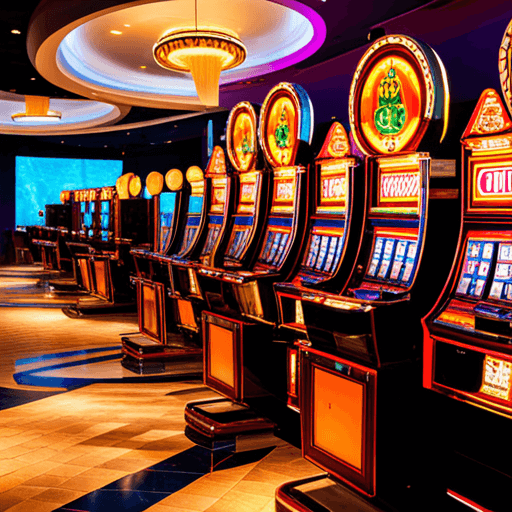
Casino activities have fascinated enthusiasts for decades, luring them into a realm of excitement, fortune, and wealth. From the flashing lights of video slots to the strategic action of poker games, these activities offer a distinct mixture of entertainment and risk. However, below the surface of this glitz and style lies a intricate interplay of math that shapes every conclusion and action made within the gambling establishment.
Grasping this connection between gaming activities and mathematics not only improves the playing experience but can also help gamblers make informed decisions. Whether you are a occasional punter or a avid follower, recognizing the numerical strategies at play can give important understandings into chances, ratios, and tactics, eventually influencing how one approaches these games of chance.
Statistical Likelihood in Gambling
In the world of gambling games, statistical likelihood plays a vital role in assessing outcomes and guiding gambler decisions. Every game has a unique set of regulations and a particular likelihood framework that affects its mechanics. For instance, in games like roulette, players must understand the chances of landing a particular number or color. The likelihood of certain occurrences happening can be computed, and this knowledge can greatly affect wagering tactics.
Players also need to be aware of the house advantage, which is the mathematical advantage that casinos hold over gamblers in the long term. This edge differs across various activities. In blackjack, skilled players can use strategies to minimize the house edge to as low as one percent, while in games like slot machines, the casino edge can be much higher. Understanding the casino edge allows players to make educated decisions about which activities to play and how much to bet.
Moreover, probability is essential in the concept of danger versus reward in betting. Every bet carries a certain risk factor, and gamblers must evaluate the potential payout against that danger. Activities like the poker game require players to not only calculate the odds of their own hand winning but also to evaluate the likelihoods of their rivals’ hands. Điều Khoản Điều Kiện 23WIN By utilizing mathematical principles to their strategy, gamblers can enhance their chances of success and engage more strategically in the exciting world of casino games.
Anticipated Value in Casino Activities
When talking about gambling activities, one of the basic ideas rooted in math is the anticipated worth. This numerical metric assists players understand the potential results of their wagers over a period. In simple terms, expected value (EV) calculates the mean amount a player can anticipate to win or lose per bet if they were to play the game many times. Each activity has its unique EV, affected by the odds and the casino advantage, which indicates the advantage that the gambling establishment holds.
For example, think of a activity like roulette. The anticipated value can be calculated based on the particular wager placed. If a gambler bets on a individual number, the return is 35 to 1, but the true chances of success that wager are 1 in 37 (in European roulette). This leads in a detrimental expected value, showing that, on the whole, players will lose money over a period when playing this type of wager. Understanding this concept allows gamblers to make more educated choices about which games and bets may be more favorable.
Furthermore, the exploration of anticipated worth can lead to improved bankroll management. Players who understand the math behind their games are often able to set practical expectations. By acknowledging their possible losses and gains, they can modify their playing strategies appropriately, which may enhance their overall gambling experience. As a result, anticipated value serves as a critical tool for both novice and experienced players to steer through the often unpredictable nature of casino activities.
Strategies and Chances: The Mathematics Behind Success
In gaming establishments, grasping the odds is vital for participants attempting to maximize their likelihood of winning. Each game has its own unique set of chances that establish winning outcomes, and these statistics are often presented in the rules of the game guidelines or payout tables. For instance, in activities like blackjack, players can improve their probabilities through tactics such as tracking cards, which relies on mathematical principles to gain an advantage over the house. By educating themselves with the probabilities, gamblers can make more knowledgeable determinations on when to wager and when to quit. https://23wins.shop/
Additionally, the principle of average value plays a significant part in gaming tactics. Expected value determines the average outcome of a stake over a period, allowing gamblers to assess whether a particular bet is valuable taking. For example, video slots have a fixed payout percentage, which can show the expected payout a participant can look for on their stakes. By choosing activities with better payout percentages, players can lessen the house edge, maximizing their possible rewards in the long run.
Lastly, successful gamblers often adopt a mix of luck and calculative tactics to improve their gaming experience. While luck is uncontrollable, managing a wagering approach based on calculative ideas can lead to more favorable outcomes. By utilizing techniques such as budgeting and picking games, participants can utilize math to handle the random nature of gambling activities, making the most of their efforts and investments at the gaming tables.